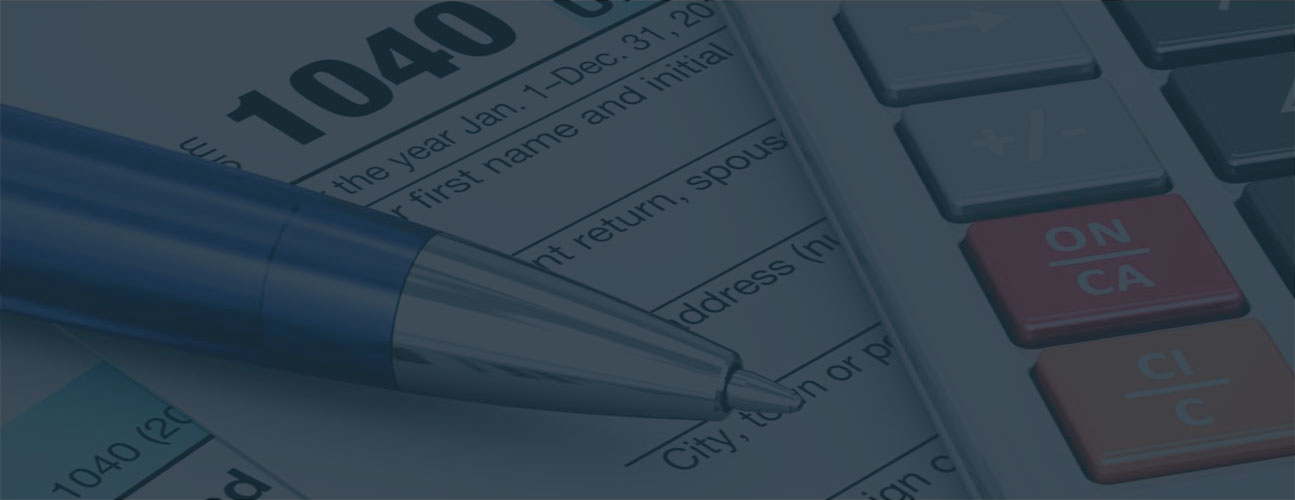If you're ready to prepare your taxes, you may be wondering if you need to hire professional help (and who to hire if you do!), what documentation you need to get together ahead of time and if you might even be able to prepare your own taxes. Read on for answers to these questions and for help knowing whether it makes sense for you to do your own taxes, how to get ready, and who to hire if your situation requires professional help.
Our professionals go up against the IRS all day, every day to fight for you. Watch Top Tax Defenders CEO Jayson Mullin explain why working with us can save you money and time.
Do I Need to Hire a Professional to Prepare My Taxes?
Deciding whether you can prepare your own taxes depends on factors like your comfort level with tax laws, the complexity of your financial situation, and the resources available to you. Here are some considerations to help you decide:
-
Complexity of Your Tax Situation: If your financial situation is relatively simple, with income mainly from wages or salaries, and you claim standard deductions, you may find it easier to prepare your taxes yourself. However, if you have multiple sources of income, investments, rental properties, self-employment income, or significant deductions and credits OR if you owe more than $10,000 in taxes, your taxes may be more complex, and you might benefit from professional assistance.
-
Knowledge of Tax Laws: Consider your understanding of tax laws and regulations. Tax laws can be complex and subject to frequent changes. If you're comfortable navigating tax forms, understanding deductions and credits, and keeping up with tax law updates, you may be able to prepare your own taxes.
-
Time and Resources: Preparing your own taxes can be time-consuming, especially if your financial situation is more complicated. Evaluate whether you have the time and resources to dedicate to researching tax laws, gathering necessary documents, and completing tax forms accurately and efficiently. If you have a busy schedule or prefer to focus on other priorities, hiring a professional may be a better option.
-
Risk Tolerance: Consider your tolerance for errors and potential audit risk. While preparing your own taxes can save money on professional fees, mistakes or omissions could lead to penalties, interest, or an audit by tax authorities. If you're concerned about making errors or are unsure about certain tax issues, consulting with a tax professional may provide peace of mind.
Ultimately, the decision to prepare your own taxes depends on how you gauge your individual circumstances, level of comfort with tax laws, and willingness to invest time and effort in the process. If you're not comfortable preparing your own taxes, you should consult with a tax professional who can give you guidance tailored to your specific situation.
>>Click Here For Advise on When to Hire a Tax Professional
What Documentation Should I Have Ready?
Having the correct documentation can prevent errors on your taxes and can also help lower the amount of taxes you'll owe. So here are some basic documents you will want to get together before preparing your taxes on your own or with a tax professional:
- Social Security documents and identification cards
- Bank account numbers for refund deposit or tax payment
- Any statements that verify income, such as W-2s, MISC-1099s,
- Tax forms that report other types of income, such as Schedule K-1 for trusts, partnership and S corporations
- Tax deduction records for things like interest paid on a mortgage or student loan, donations worth more than $500, tuition expense statements, and estimated tax payment records
- Expense receipts for medical bills, charitable contributions, IRA contributions and certain education expenses
Though not required, having a copy of your last tax return on hand can also be very helpful.
>>Click Here for Advise on How to Organize and Store Tax Documents
What Type of Tax Professional Should I Hire?
If you decide you'll need to hire a tax professional, certified Public Accountants (CPAs) and tax attorneys are both professionals who specialize in tax matters. However, they have different qualifications, roles, and areas of expertise. If you're planning to hire a CPA or tax attorney, but aren't exactly sure which you need, here is a basic comparison of the two:
| |
CPAs |
Tax Attorneys |
| Qualifications |
must pass CPA exam, ethics requirements by state |
lawyers with a law degree, specialize in tax law, must pass state bar exam |
| Roles |
focused on tax compliance; offer accounting services, including tax preparation, financial planning, audit representation, and consulting |
provide legal advice on tax matters, tax planning, tax controversies, IRS audits, tax litigation, estate planning, business transactions, and other legal issues involving taxation; may represent clients in court |
| Expertise |
have a deep understanding of accounting principles and tax regulations; some ability to negotiate with IRS and tax authorities |
have a comprehensive understanding of tax laws, regulations, and court precedents; handle complex legal issues, interpret tax statutes, provide legal opinions, negotiate with tax authorities |
| Client Representation |
represent clients before the IRS and other tax authorities in matters related to tax returns they prepared, limited ability to represent clients in court |
represent clients in all stages of tax disputes, including IRS audits, appeals, and litigation; provide legal advocacy in complex tax matters |
In summary, while both CPAs and tax attorneys possess valuable skills and knowledge in tax matters, their qualifications, roles, and areas of expertise differ. CPAs primarily focus on accounting and tax compliance, while tax attorneys provide legal advice, representation, and advocacy in tax-related legal matters.
>>Click Here for Advice on Which Tax Professional to Hire

Help for Complicated Tax Situations
What if you are having problems with the IRS, and need help? While a CPA is ideal for the typical taxpayer, finding a professional that has experience in dealing with the IRS is important if you are having tax problems.
If the IRS has started collections proceedings against you, it's likely that a CPA or tax attorney will not be knowledgeable enough to help you out of your situation. You need someone that has experience specifically dealing with the IRS when the IRS is acting in a collections capacity. Tax preparation is very different than tax collections, and each aspect of tax code has complicated regulations. CPAs are experts in tax preparation, but cannot necessarily help you if you have problems with the IRS due to failure to file in previous years, or a failure to pay a tax debt owed to the IRS.
>>Click Here for 6 Questions to Ask a Tax Attorney Before Hiring Them
Get Help with Tax Preparation
If you need tax preparation help for back taxes, a tax firm like Top Tax Defenders can help you bring your filings up to date and work with the IRS to find a solution to your problem.
Top Tax Defenders can help you get out of tax debt, whether that means paying your debt in monthly installments, settling your debt for less, or pausing collection actions during periods when you cannot afford to pay. Top Tax Defenders has the experience and expertise you're looking for in a tax firm:
- Over 27 years of tax experience
- Proven methods for pursuing the IRS for a solution to the client's tax problems
- Knowledge of the intricacies of the IRS collections process
Our team of experts is ready to offer you a free consultation based on your personal tax situation.
>>Click Here to Read Real-Life Success Stories from Our Clients







